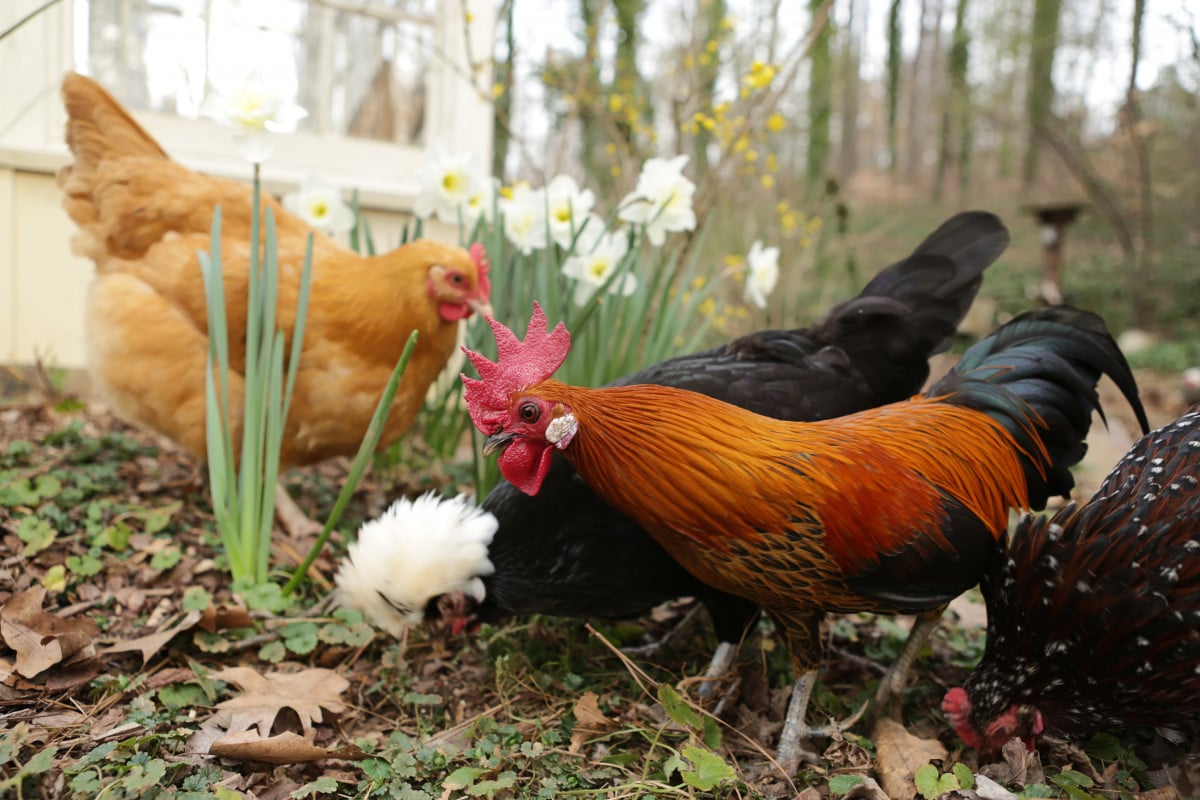Keeping roosters with hens in chicken husbandry can be a great way to ensure the health and productivity of your flock. Roosters are integral to the successful keeping of hens, as they provide protection from predators, ensure the fertility of the eggs, and provide social stability to the flock. In this article, we’ll explore the benefits of keeping roosters with hens in chicken husbandry, and how it can help to ensure the success of your flock.
Benefits of Keeping Roosters with Hens
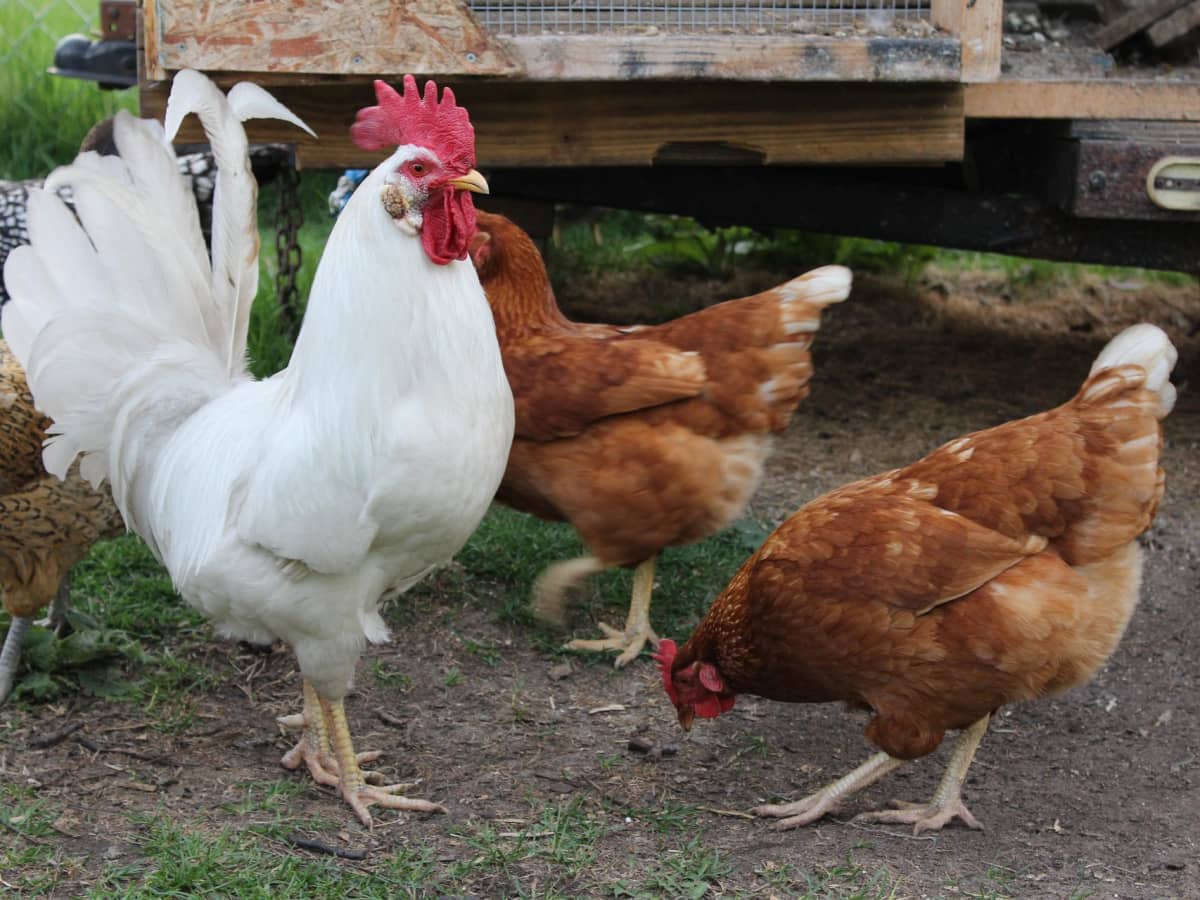
Mating
Having a rooster in the flock is essential for successful mating. Without a rooster, hens are unlikely to lay eggs that can be fertilized. Roosters will also mate with multiple hens, ensuring that the flock is productive and healthy.
Protection
A rooster can provide protection for the hens in the flock. Roosters are territorial and will defend their flock from predators and other threats. Roosters can also sound the alarm if they sense danger, allowing the hens to seek shelter.
Social Interaction
Having a rooster in the flock can provide a social hierarchy and structure that can help keep the hens calm. Roosters can also help reduce the amount of stress that can lead to issues such as reduced egg production and feather picking. A rooster can even help prevent hens from becoming egg bound, a condition in which a hen cannot lay her eggs. The answer to the question “Can a rooster keep hens from laying?” is yes.
Can a Rooster Keep Hens from Laying?
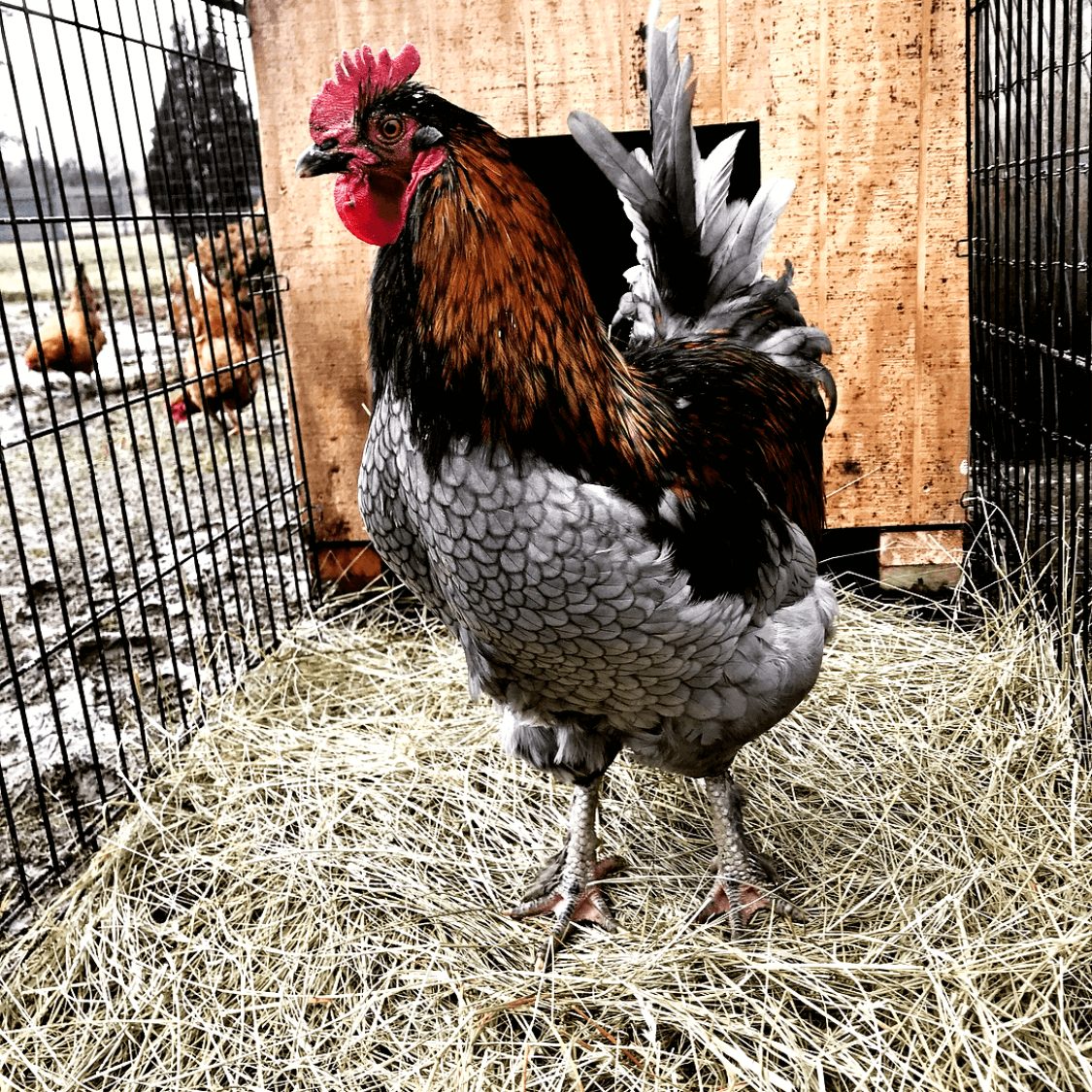
| Yes | No |
|---|---|
| A rooster may try to prevent a hen from laying eggs by intimidating her or by taking away her nesting area. | A rooster cannot stop a hen from laying eggs. Hens lay eggs regardless of the presence of a rooster. |
Hens typically lay eggs between 16 and 24 weeks of age and continue to lay eggs until they are approximately 72 weeks old. A hen’s production can be affected by a rooster by preventing her from nesting, in which case the eggs will not be laid. Roosters may also intimidate hens, causing them to stop laying. This behavior is usually seen in younger roosters that are trying to establish dominance in the flock. Roosters may also take away the nesting area of hens, preventing them from laying eggs.
In most cases, however, a rooster will not stop a hen from laying eggs. The presence of a rooster does not change the number of eggs a hen will lay in a given season; the hen will continue to lay eggs regardless of the presence of a rooster. Roosters can, however, be beneficial to a flock in other ways. They help to protect the hens from predators, alert hens of potential danger, and control aggressive behavior among hens.
Challenges of Keeping Roosters with Hens
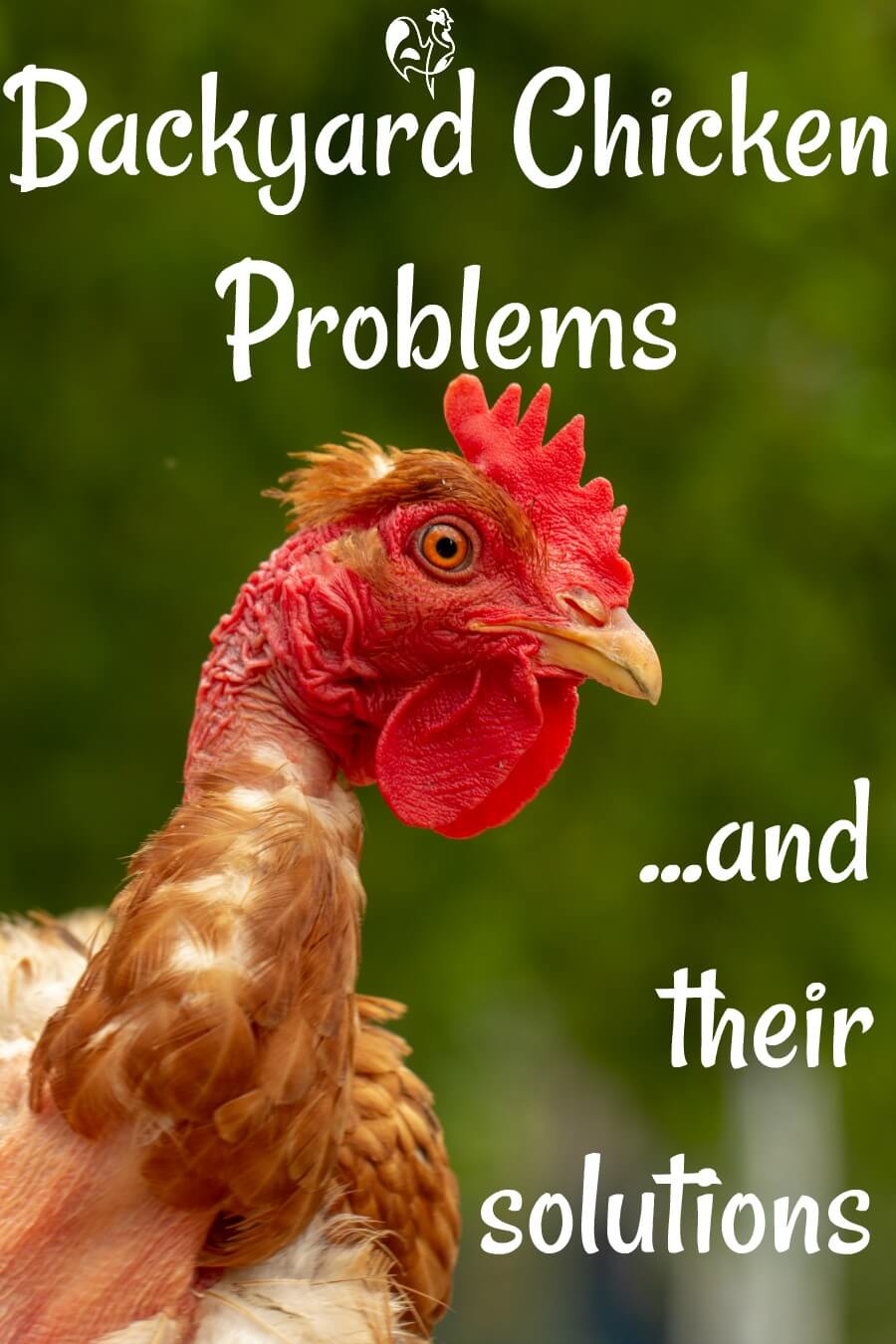
Territoriality
A rooster is naturally very territorial and will try to defend his flock from any perceived threat. This means that if you introduce a new rooster to an existing flock, it can lead to aggressive fights among the birds.
Increased Noise
Roosters are naturally loud and vocal creatures, so having one around can add to the noise level in your backyard. It is important to consider your neighbors before introducing a rooster to your flock.
Aggression
Roosters can be aggressive and may attack humans or other animals if they feel threatened. It is important to be aware of the risks of having a rooster in your flock and to take necessary precautions such as keeping the rooster in a separate area or pen.
Health Risks
Roosters can carry diseases and parasites that can be passed on to hens, so it is important to keep them away from the hens or to treat them for any possible diseases or parasites to prevent the spread of illness.
How to Manage Roosters with Hens
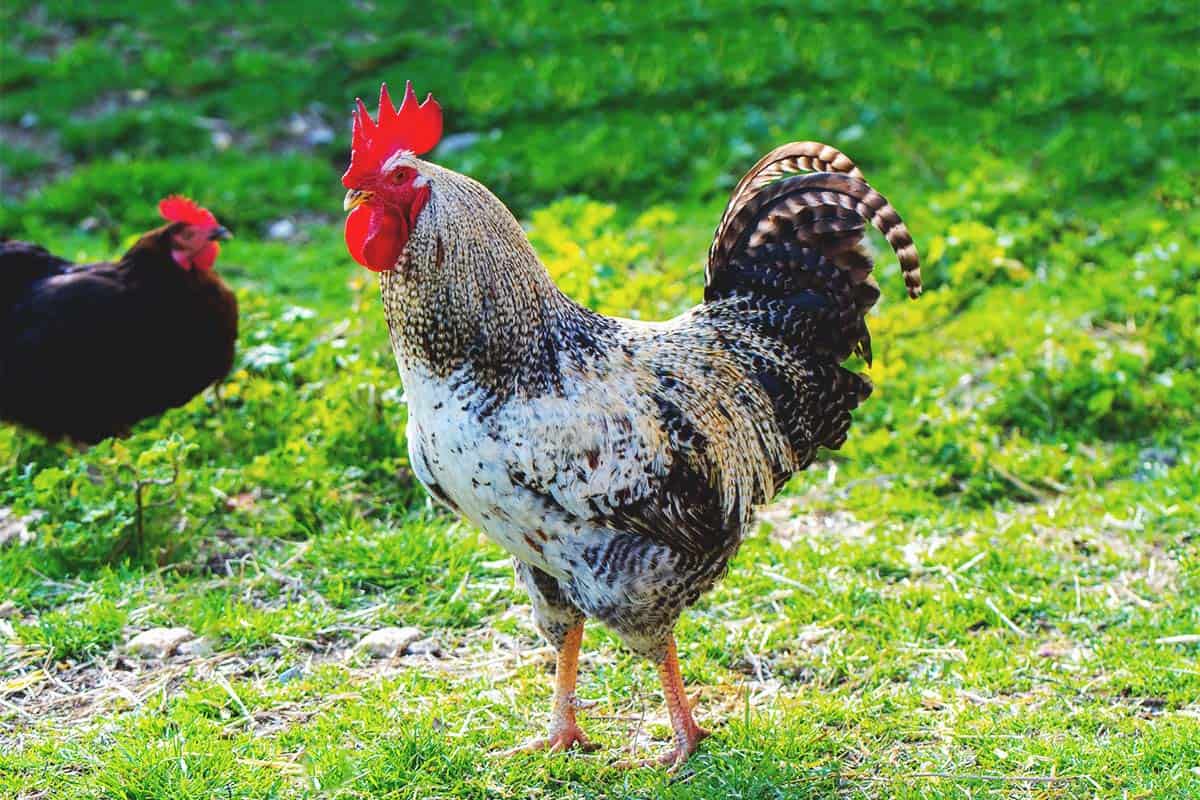
Feeding
Roosters should be given a high-quality layer feed or a balanced gamebird feed to ensure they receive the proper nutrition. Roosters should also be given access to grit to help them digest their food and to provide calcium. Additionally, they should receive plenty of fresh, clean water every day.
Housing
Roosters should be kept in separate housing from the hens, as they can be aggressive and territorial. Roosters need plenty of space to move around and to hang out with the other roosters. The housing should have enough space for the birds to spread their wings and should have protection from the elements. Roosters should also have a place to roost at night, such as a perch or a roosting bar.
Conclusion
Having a rooster in your chicken coop is essential to a healthy, productive flock. Roosters keep hens safe and secure, promote egg production, and help maintain order. Roosters are also great watchdogs and can be a great source of entertainment. Keeping roosters with hens can be a rewarding experience for both birds and humans alike.
Frequently Asked Questions
What are the Advantages of Keeping Roosters and Hens Together?
Keeping roosters and hens together in chicken husbandry offers a range of benefits. Roosters can help keep hens safe by alerting them to any potential predators and keeping them in line. Roosters can also help hens stay healthy by providing nutritional supplements like grit and supplement feed. Furthermore, roosters can help hens with egg production and fertility by stimulating the hens to lay eggs. Finally, roosters can help with the overall health and wellbeing of the flock by providing a sense of stability and security.
What are the Risks Associated with Keeping Roosters and Hens Together?
Keeping roosters and hens together in chicken husbandry carries potential risks, such as increased aggression, heightened stress levels, and potential injury. Roosters can become aggressive when there are too many birds in a small space, or when a new bird is introduced. This can lead to fighting, which can cause injury or death to the birds. Additionally, the presence of a rooster may cause stress in hens if they are not used to being around one. Finally, hens can become over-mated and over-bred if there are too many roosters around.
What kind of space is needed for a rooster and hen to live together?
Roosters and hens need ample space to live together harmoniously. A chicken coop should be large enough to allow for at least 4 square feet per bird, with more space if possible. The enclosure should also be well-ventilated and provide shade from the sun. To prevent fighting, provide separate nesting boxes for each bird. Additionally, have multiple perches for the birds to roost on.
What are the Considerations for Choosing a Rooster for a Flock?
When selecting a rooster, it is important to consider temperament, the size of the flock, health, and the breed of chicken. A rooster should have a calm and friendly personality, as an aggressive rooster can be dangerous and cause stress in the flock. The size of the flock should also be taken into consideration; too many roosters can lead to fighting, and a single rooster can become overwhelmed if there are too many hens. Health should also be a priority, as a sick rooster can easily spread disease to the entire flock. Lastly, the breed of chicken should be taken into consideration, as some breeds are better suited for different climates and environments.
Are there any special precautions that need to be taken when keeping roosters and hens together?
Yes, there are a few precautions that should be taken when keeping roosters and hens together:
- Introduce the rooster to the hens slowly: Roosters can be territorial and aggressive, so it’s important to introduce them slowly and carefully. Start by keeping them in separate enclosures and slowly familiarizing them with each other before allowing them to mix together.
- Provide plenty of space: Roosters and hens can become aggressive if they feel like there is not enough space for them to spread out. Make sure that the area you’re keeping your roosters and hens in is spacious enough for them to move around and have their own space.
- Watch for signs of aggression: Roosters can become aggressive and start attacking the hens. Keep an eye out for aggressive behavior and intervene if necessary to prevent any injuries.
- Provide a safe environment: Make sure that the area your roosters and hens are kept in is safe and secure. This will help reduce stress and prevent any accidental injuries.
It’s important to be aware of the potential risks and take the necessary precautions when keeping roosters and hens together. With the right measures in place, you can create a safe and comfortable environment for both the roosters and hens.
Conclusion
Keeping roosters with hens in chicken husbandry is beneficial in many ways, including increased fertility of eggs, protection of the flock, and assistance with mating and egg-laying. Roosters also contribute to flock dynamics, providing a natural hierarchy and helping to keep order in the coop. However, roosters can be noisy and can also be aggressive to other chickens, so it is important to consider the pros and cons before adding a rooster to your flock.
